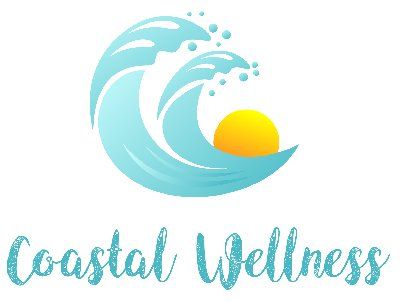Understanding Intergenerational Trauma: Breaking the Cycle for Future Generations
Break the cycle. Heal the pain.

Trauma doesn’t always start with us, but its effects can span generations, deeply impacting families in ways that often go unnoticed. This phenomenon is known as intergenerational trauma, and it can leave lasting emotional, psychological, and even physical scars that affect children, grandchildren, and beyond. At Coastal Wellness and Life Coaching Center, we believe that understanding this type of trauma is the first step in healing and breaking the cycle for future generations.
What is Intergenerational Trauma?
Intergenerational trauma refers to the transmission of trauma from one generation to the next. This can happen when individuals who experience significant trauma - such as war, abuse, discrimination, or extreme loss - pass down the emotional and psychological effects of that trauma to their children and grandchildren. It is not just the trauma itself that gets passed on, but the ways in which individuals cope, process, or repress their emotions, which can impact family dynamics, mental health, and behaviors for years to come.
For example, a parent who experienced significant emotional neglect in their childhood may struggle to provide the emotional support and nurturing their children need. This can result in the next generation experiencing feelings of unworthiness or anxiety, even if they did not experience the same neglect directly.
Signs of Intergenerational Trauma
The signs of intergenerational trauma can manifest in many ways, both subtle and overt. Here are a few common indicators:
- Emotional Difficulties: Feelings of anxiety, depression, or unexplained sadness that seem to persist throughout generations.
- Difficulty with Trust or Attachment: Family members may struggle to form healthy relationships or maintain strong emotional connections.
- Patterns of Dysfunctional Coping: Substance abuse, aggression, or emotional withdrawal may be used as coping mechanisms that repeat across generations.
- Mental Health Issues: Conditions like PTSD, depression, or anxiety may affect multiple family members without a clear understanding of their root cause.
How to Cope with Intergenerational Trauma
While it can feel overwhelming to recognize patterns of trauma within a family, the good news is that healing is possible. Breaking the cycle of intergenerational trauma requires both awareness and action. Here are some ways to begin the healing journey:
- Acknowledge the Trauma: Understanding that trauma exists and affects multiple generations is the first step toward healing. Whether the trauma stems from abuse, neglect, or larger societal forces like racism or war, acknowledging its presence can provide clarity.
- Seek Professional Support: Therapy can play a vital role in addressing intergenerational trauma. Both individual counseling and family therapy can help unravel the underlying issues that may have been passed down through generations. Specialized therapies like EMDR (Eye Movement Desensitization and Reprocessing) are particularly effective in addressing trauma, allowing individuals to process and heal from painful memories.
- Set Boundaries and Practice Self-Care: Healing from intergenerational trauma involves establishing healthy boundaries with family members who may still carry unresolved trauma. Practicing self-care - whether through mindfulness, exercise, or creative outlets - helps foster resilience and emotional well-being.
- Break Negative Patterns: By recognizing patterns of behavior or emotional responses that are rooted in trauma, individuals can actively work to change those patterns. This might include fostering healthier communication, learning new coping mechanisms, and encouraging open discussions about feelings.
- Cultivate Compassion and Forgiveness: Healing also involves forgiveness - both for yourself and for those who came before you. Understand that previous generations did the best they could with the resources they had, and that the work you do now can benefit future generations.
How Coastal Wellness and Life Coaching Center Can Help
At Coastal Wellness, we offer a range of therapeutic services designed to help individuals and families address intergenerational trauma. Our counseling services provide a safe, supportive environment to explore family dynamics and begin the healing process. We also offer EMDR therapy, which is particularly effective for processing and resolving trauma that has been passed down through generations.
Our goal is to help you understand the root causes of emotional pain and guide you toward healing, not only for yourself but for the generations to come.
Intergenerational trauma can feel like a heavy burden, but it does not have to define your future or your family’s. By recognizing the signs, seeking professional support, and actively working to break harmful patterns, healing is possible. You have the power to break the cycle and create a brighter, healthier path for future generations.
If you or someone you know is struggling with intergenerational trauma, contact Coastal Wellness and Life Coaching Center today to learn how we can support you on your healing journey.















Share On: